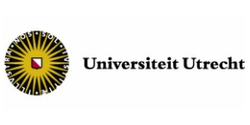Postdoc in modelling and understanding the reading process in a digital age
Updated: 01 May 2024
Are you interested in the development and application of AI and Data Science techniques to model and understand real world problems? Do you enjoy formal and computational modelling of the human reading process? And would you like to be involved in a multi-disciplinary research project that aims at creating social impact? Then this is an interesting position for you!
Your job
The digital world has transformed the way we read as well as the way we learn how to read, offering both challenges and opportunities. To understand these challenges and opportunities it is important to consider reading processes and outcomes as well as reading education from multiple perspectives. We are searching for a postdoctoral researcher who can assist us in investigating AI and Data Science techniques that can be developed and applied to model and understand the processing of, as well as teaching of reading texts in a digital age. This project is part of the national research programme “Becoming literate in a digital age: Adapting reading education in the Netherlands financed by the Dutch government-agenda”. The ultimate goal of the programme as a whole is to develop educational interventions that aid individual students, especially those who are at risk of a delay in their development as readers, to acquire the ability to process written information in the digital age.
As postdoc you are a member the department of Information and Computing Sciences as well as of the consortium for Becoming literate in a Digital Age. You will work with two other postdocs that aim at developing a conceptual model of reading and reading education and a framework for didactic and pedagogic methods that effectively support students’ reading and reading processes. You will support the development of their model and methods by investigating which and how AI & Data Science techniques can be employed to analyse datasets in order to find relevant structures and patterns to underpin their model and methods. You may also advise them on gathering, preparing, and organising new data for the further development of their models and methods, and to inform them whether their model and teaching methods can be operationalized and tested by data. If possible, you can help them to formulate and evaluate testable hypotheses on possible teaching methods.
Your activities will include:
- reviewing existing research literature in the various disciplines and identify AI & Data Science techniques relevant for this project;
- identifying and analysing relevant data sources for the empirical grounding of the conceptual model and educational framework;
- consultation with consortium members from different disciplines, partnering educational organizations, reading specialists, and other stakeholders;
- designing and evaluating AI & Data Science techniques to support the development of the conceptual model and educational framework;
- engaging in data-driven research on the described topics;
- participating in writing scientific and professional publications and presenting at national and international meetings.
Teaching tasks are not included in these activities, but might be possible should opportunities in line with your expertise arise.
Requirements:
We are looking for an enthusiastic candidate who:
- has obtained a PhD in a field relevant to AI & Data Science;
- has affinity and experience with scientific data-driven research;
- has knowledge and skills concerning quantitative and qualitative research;
- possesses strong interpersonal and communicative skills, can work independently as well as collaboratively, and has affinity for multi-disciplinarity;
- is proficient in speaking/writing in English and, preferably, Dutch;
- enjoys conceptual challenges and abstract thinking, but is also interested in the societal impact of these conceptual and intellectual efforts.
Salary Benefits:
We offer:
- The position is available for one year at full-time (1.0 FTE). However, we prefer the position to be filled part-time (20-32 hours) to facilitate a longer contract duration, thereby extending the participation in the project;
- a gross monthly salary, depending on previous qualifications and experience, between €3,226 and €5,090 in the case of full-time employment (salary scale 10 under the Collective Labour Agreement for Dutch Universities (CAO NU));
- 8% holiday pay and 8.3% year-end bonus;
- a pension scheme, partially paid parental leave and flexible terms of employment based on the CAO NU.
In addition to the terms of employment laid down in the CAO NU, Utrecht University has a number of schemes and facilities of its own for employees. This includes schemes facilitating professional development, leave schemes and schemes for sports and cultural activities, as well as discounts on software and other IT products. We also offer access to additional employee benefits through our Terms of Employment Options Model. In this way, we encourage our employees to continue to invest in their growth. For more information, please visit Working at Utrecht University.
20 - 32 hours per week
Leuvenlaan 4

